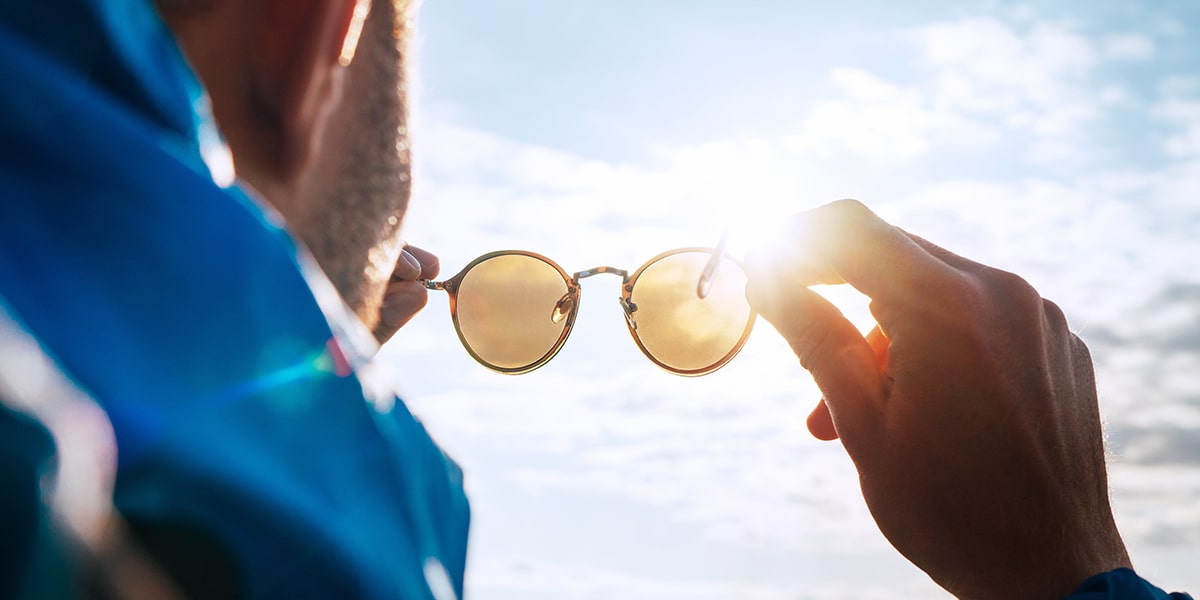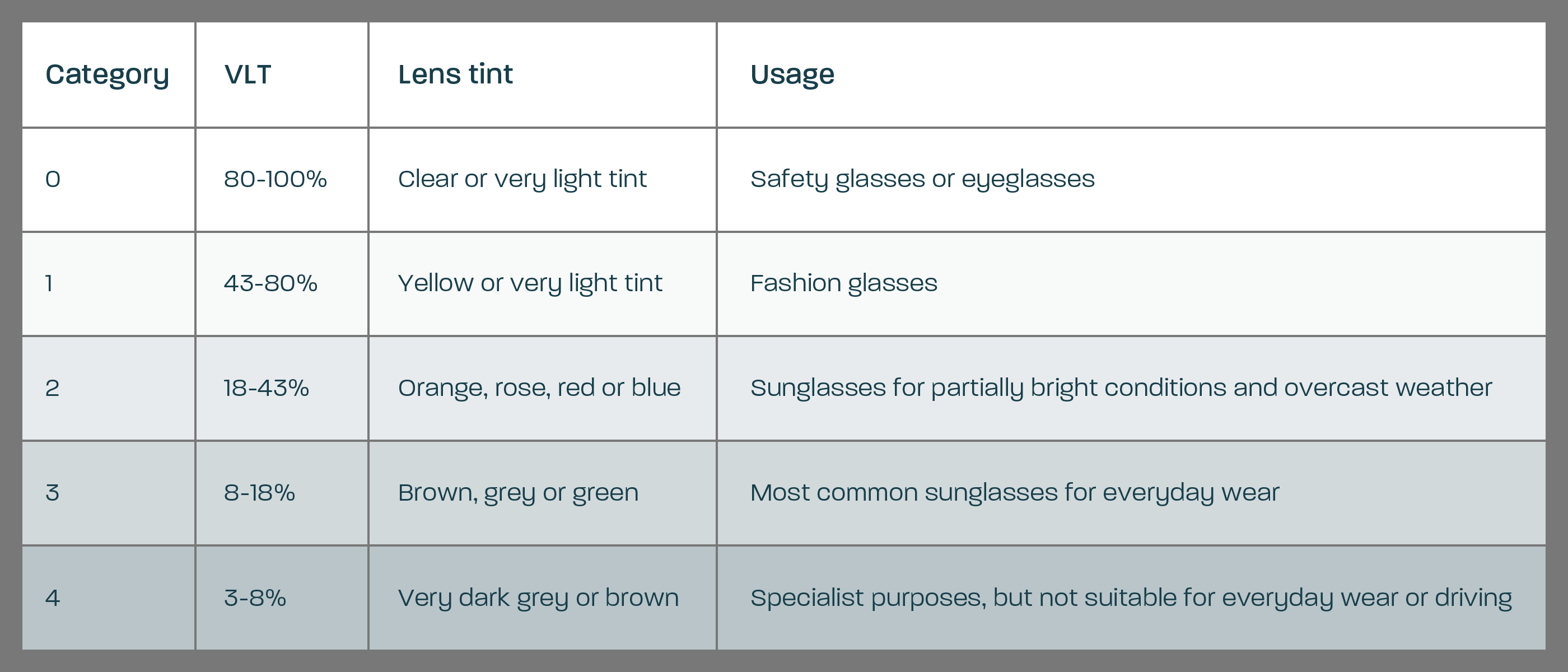Search based on the size of your current glasses
- Shop by shape
- Shop by colour
- Shop by size


Sunglasses serve two major purposes. The first is to protect our eyes from UV rays and the second to shield us against blinding light. Contrary to what you might expect, these two things are not actually related. In fact, you can have completely clear glasses that protect against UV and also sunglasses that don't actually offer you sufficient protection. Let's discuss the differences.
First, we'll look into the meaning of UV protection and why it is so important.
Sunlight emits harmful ultraviolet radiation which includes UVA and UVB rays. What most people don’t realise is that this can be just as damaging to your eyes as it is to your skin. UV protection is an essential coating added to sunglasses or glasses designed to filter or block harmful ultraviolet radiation.


Overexposure to UV rays can cause damage to your eyes and ultimately lead to the onset of several eye diseases. UVB rays can result in snow blindness or can lead to some eyelid tumours. UVB is mostly absorbed by the cornea of the eye. Meanwhile, UVA is responsible for around 95% of the ultraviolet radiation that we absorb from the sun. This can cause diseases like cataracts and lead to the development of macular degeneration.
To lower your risk, it is absolutely vital that you wear a reliable pair of sunglasses or glasses with UV protection. All of our sunglasses tint options have a UV400 rating and offer 100% UV protection. You can also choose to add a UV coating to clear lenses.
Sunglasses lenses are essentially prescription or non-prescription lenses that are tinted. The percentage of VLT (Visible Light Transmission) determines the category number. The higher the VLT the lighter the lens will be. On the other hand, if the VLT percentage is lower, then the lens tint will be darker and therefore block more light from getting into the eye.
Sunglasses lenses are categorised according to how dark the tint is. There are five different categories measured by how much light they absorb through the lens.
Category 0 lenses tend to be clear or very lightly tinted. They are commonly used for safety glasses or any form of eyewear that is designed for you to see clearly.
Category 1 lenses are often a yellow colour or a very light tint. They are mainly intended for fashion purposes and are not ideal for bright conditions but will provide mild protection on bright days.
Category 2 lenses are suitable for partially bright conditions and overcast weather. They tend to be orange, rose, red or blue in colour.
Category 3 sunglasses are the most common category and provide added protection from UV light. Our standard dark sunglasses tints are within this category, offering 100% UV protection and filtering out 75% of the light. They come in brown, grey and green. These sunglasses are perfect for everyday wear.
Category 4 lenses are often a very dark grey or brown. They are ideal for specialist purposes like mountaineering but not suitable for everyday wear or driving in the UK.


Ideally, you'll need a minimum of at least category 2 lenses to ensure a suitable level of protection from UV light and the sun’s glare. Our dark tints are category 3 and ideal for keeping you safe in the sun on a daily basis.
Sunglasses up to category 3 are best for driving during the day. Categories that are any higher will be too dark for you to drive safely. We would recommend a brown lens specifically as this improves contrast which is ideal for driving.
UV400 sunglasses feature lenses which are capable of filtering out between 99% and 100% of UVA/B rays. This means they are able to appropriately protect your eyes, blocking wavelengths up to 400 nanometres.
You can choose to add a UV coating to clear prescription glasses. Our sophisticated lens packages, from Gold upwards, have a UV400 coating, providing 100% protection against UVA/B radiation from the sun. Although, on very bright days, we would still recommend that you opt for sunglasses. Sunglasses will provide more adequate protection against the sun's glare.